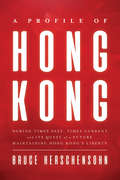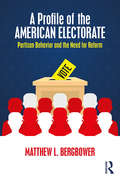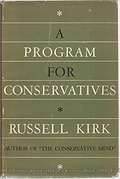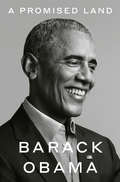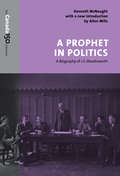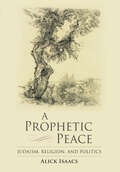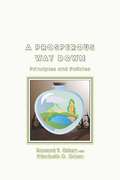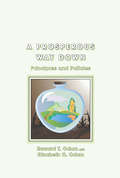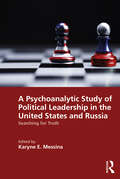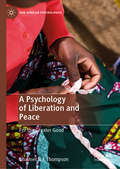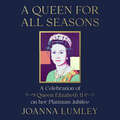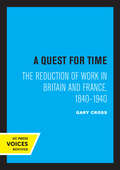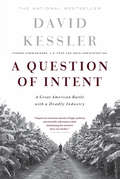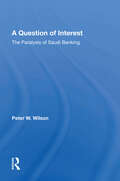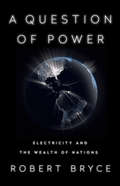- Table View
- List View
A Professional Foreigner: Life in Diplomacy
by Edward MarksYoung American Foreign Service officers are accustomed to being teased by friends and relatives as to what they do in the &“Foreign Legion&” or the &“Forest Service.&” In the United States, unlike in many countries, the role of a professional diplomat is little known or understood. In A Professional Foreigner Edward Marks describes his life as an American diplomat who served during the last four decades of the twentieth century, from 1959 to 2001. Serving primarily in Africa and Asia, Marks was present during the era of decolonization in Africa (but always seemed to be at the opposite end of the continent from the hottest developments), was intimately involved in the early days of the U.S. government&’s antiterrorism programs, observed the unfolding of a nasty and tragic ethnic conflict in one of the most charming countries in the world, and saw the end of the Cold War at UN headquarters in New York. Along the way Marks served as the U.S. ambassador to two African nations. In this memoir Marks depicts a Foreign Service officer&’s daily life, providing insight into the profession itself and what it was like to play a role in the steady stream of history, in a world of quotidian events often out of the view of the media and the attention of the world. Marks&’s stories—such as rescuing an American citizen from a house of ill repute in Mexico and the attempt to recruit mongooses for drug intervention in Sri Lanka—are both entertaining and instructive on the work of diplomats and their contributions to the American story.
A Profile of Hong Kong: During Times Past, Times Current, and Its Quest of a Future Maintaining Hong Kong's Liberty
by Bruce HerschensohnA Profile of Hong Kong provides a detailed history of colonialism in Hong Kong that still reverberates today. Despite this tumultuous history, there are many things that make Hong Kong special and worth fighting for. For over 100 years, the Hong Kong people have been fighting for liberty despite the constant oppression from other countries. Bruce Herschensohn shows how years of riots and protests demonstrate the resilience of the Hong Kong people and the determination to make their country belong to them. With compelling firsthand accounts, A Profile of Hong Kong explores the history of this political entity from a 99-year treaty to the handover to the recent powerful protests for liberty. Herschensohn emphasizes the irony of the Chinese government coming to Hong Kong, the majority of whose people had fled from that same government, and how these very people are once again facing oppression from this repressive government.Herschensohn includes through descriptions of the changes for Hong Kong people that were put into place 100 years ago as well as descriptions of major international figures in the complicated history of Hong Kong. While there are large effects of other countries on Hong Kong, Hong Kong has also had effects on other countries. “Once you have visited Hong Kong. it would never stop visiting you.”
A Profile of the American Electorate: Partisan Behavior and the Need for Reform
by Matthew L. Bergbower<i>A Profile of the American Electorate</i> takes an extensive look at the political foundations and behaviors of citizens, yesterday and today. Presenting decades of data on voter choice, voter turnout, and public opinion in a way that is clear and accessible for students of political science, the book uniquely emphasizes the importance of voting, socialization, and reform measures to enhance good citizenship. It explores how Americans become conservative or liberal, why some vote and others stay home, their knowledge of politics, how polarized the public has become, and the complex motivations behind their vote choices.
A Program for Conservatives
by Russell KirkArguing against doomsayers, Dr. Kirk points to youthfulness of American civilization, and the inevitable patterns of decadence and renewal that need not presage cultural apocalypse.
A Promised Land
by Barack ObamaA riveting, deeply personal account of history in the making—from the president who inspired us to believe in the power of democracy <p><p> In the stirring, highly anticipated first volume of his presidential memoirs, Barack Obama tells the story of his improbable odyssey from young man searching for his identity to leader of the free world, describing in strikingly personal detail both his political education and the landmark moments of the first term of his historic presidency—a time of dramatic transformation and turmoil. <p> Obama takes readers on a compelling journey from his earliest political aspirations to the pivotal Iowa caucus victory that demonstrated the power of grassroots activism to the watershed night of November 4, 2008, when he was elected 44th president of the United States, becoming the first African American to hold the nation’s highest office. <p> Reflecting on the presidency, he offers a unique and thoughtful exploration of both the awesome reach and the limits of presidential power, as well as singular insights into the dynamics of U.S. partisan politics and international diplomacy. Obama brings readers inside the Oval Office and the White House Situation Room, and to Moscow, Cairo, Beijing, and points beyond. We are privy to his thoughts as he assembles his cabinet, wrestles with a global financial crisis, takes the measure of Vladimir Putin, overcomes seemingly insurmountable odds to secure passage of the Affordable Care Act, clashes with generals about U.S. strategy in Afghanistan, tackles Wall Street reform, responds to the devastating Deepwater Horizon blowout, and authorizes Operation Neptune’s Spear, which leads to the death of Osama bin Laden. <p> A Promised Land is extraordinarily intimate and introspective—the story of one man’s bet with history, the faith of a community organizer tested on the world stage. Obama is candid about the balancing act of running for office as a Black American, bearing the expectations of a generation buoyed by messages of “hope and change,” and meeting the moral challenges of high-stakes decision-making. He is frank about the forces that opposed him at home and abroad, open about how living in the White House affected his wife and daughters, and unafraid to reveal self-doubt and disappointment. Yet he never wavers from his belief that inside the great, ongoing American experiment, progress is always possible. <p> This beautifully written and powerful book captures Barack Obama’s conviction that democracy is not a gift from on high but something founded on empathy and common understanding and built together, day by day.
A Prophet in Politics: A Biography of J.S. Woodsworth
by Allen Mills Kenneth McnaughtIn this elegant and rigorously researched work, Kenneth McNaught details the life, work, and principles of J.S Woodsworth and shows the powerful moral and political force that the pacifist, Methodist thinker exerted on Canadian politics.Woodsworth first went to the House of Commons in 1922, and became leader of the Cooperative Commonwealth Federation at its formation in 1933. A socialist to the end, he exhibited his anti-war convictions to Parliament, when, in 1939, he alone spoke out against joining the war in Europe. Woodsworth's ideas and strong social conscience helped to shape the development of the welfare state in Canada, and have left an intellectual legacy in both socialist and liberal circles.A Prophet in Politics marks the progress of socialism in Canada, as well as the economic and political conditions in the first half of the twentieth century. McNaught, who died in 1997, is himself an important figure in Canadian history, having fought as a professor of history for academic freedom and having brought the scholarly discussion of national politics into the public sphere. At the time of its original publication, Globe and Mail reviewers called it 'a definitive biography that in drama and organization ranks with the best books about the makers of Canada.' This edition, presented in the 'Reprints in Canadian History' series, includes a new introduction by Allen Mills.
A Prophetic Peace: Judaism, Religion, and Politics
by Alick Isaacs“Real philosophy for the real world . . . if you’re interested in peace, read it.” —EborChallenging deeply held convictions about Judaism, Zionism, war, and peace, Alick Isaacs’s combat experience in the second Lebanon war provoked him to search for a way of reconciling the belligerence of religion with its messages of peace.In his insightful readings of the texts of Biblical prophecy and rabbinic law, Isaacs draws on the writings of Ludwig Wittgenstein, Jacques Derrida, Abraham Joshua Heschel, and Martin Buber, among others, to propose an ambitious vision of religiously inspired peace. Rejecting the notion of Jewish theology as partial to war and vengeance, this eloquent and moving work points to the ways in which Judaism can be a path to peace. A Prophetic Peace describes an educational project called Talking Peace whose aim is to bring individuals of different views together to share varying understandings of peace.
A Prosperous Way Down
by Howard T. Odum Elisabeth C. OdumA Prosperous Way Down, the last book by Howard T. and Elisabeth C. Odum, has shaped politics and planning as nations, states, and localities begin the search for ways to adapt to a future with vastly increased competition for energy. It considers ways in which a future with less fossil fuel could be peaceful and prosperous. Although history records the collapse of countless civilizations, some societies and ecosystems have managed to descend in orderly stages, reducing demands and selecting and saving what is most important. The authors make recommendations for a more equitable and cooperative world society, with specific suggestions based on their evaluations of trends in global population, wealth distribution, energy sources, conservation, urban development, capitalism and international trade, information technology, and education. Available for the first time in paperback, this thoughtful, provocative book forces us to confront assumptions about our world 's future and provides both a steadying hand and a call to action with its pragmatic analysis of a global transition.
A Prosperous Way Down: Principles and Policies
by Howard T. Odum Elisabeth C. OdumA Prosperous Way Down (2001), the last book by Howard T. and Elisabeth C. Odum, has shaped politics and planning as nations, states, and localities begin the search for ways to adapt to a future with vastly increased competition for energy. A Prosperous Way Down considers ways in which a future with less fossil fuel could be peaceful and prosperous. Although history records the collapse of countless civilizations, some societies and ecosystems have managed to descend in orderly stages, reducing demands and selecting and saving what is most important. The authors make recommendations for a more equitable and cooperative world society, with specific suggestions based on their evaluations of trends in global population, wealth distribution, energy sources, conservation, urban development, capitalism and international trade, information technology, and education. Available for the first time in paperback, this thoughtful, provocative book forces us to confront assumptions about our world 's future and provides both a steadying hand and a call to action with its pragmatic analysis of a global transition.
A Proud Taste for Scarlet and Miniver (Yearling Book)
by E.L. KonigsburgEleanor of Acquitaine has been waiting in Heaven for a long time to be reunited with her second husband, Henry II of England. Finally, the day has come when Henry will be judged for admission--and while Eleanor waits, three people close to her during various times of her life join her, helping to distract her and providing a rich portrait of a remarkable woman in history.
A Psychoanalytic Study of Political Leadership in the United States and Russia: Searching for Truth
by Karyne E. MessinaA Psychoanalytic Study of Political Leadership in the United States and Russia: Searching for Truth provides psychoanalytic insight into the motives of this complex and contradictory figure.The contributors, from different professional and academic backgrounds, use a range of methods including quantitative research and literary analysis to shed light on Putin’s background, outlook and current actions. Reflecting a range of perspectives on how Putin’s background may have informed his beliefs and his actions, particularly with respect to the invasion of Ukraine, the book brings together diverse viewpoints.A Psychoanalytic Study of Political Leadership in the United States and Russia will be of great interest to psychoanalysts and to readers seeking to understand the complex dynamics of populist leadership.
A Psychoanalytical-Historical Perspective on Capitalism and Politics
by Mino VianelloA Psychoanalytical-Historical Perspective on Capitalism and Politics explores how empathy once shaped the collective unconscious, before being replaced by rampant individualistic drive to power. Mino Vianello uses "radical federalism" to define a new approach to democracy, hoping for an end to the repetition of outdated political and economic ideals to solve the world’s democratic crisis. The book brings together a multitude of disciplines and perspectives, including Marxism, history, class, feminism, politics and empathy, to provide a comprehensive and honest history of power from the Enlightenment to the present day. This interdisciplinary study will be key reading for academics and scholars of Jungian studies, politics, sociology, history and economics.
A Psychology of Liberation and Peace: For the Greater Good (Pan-African Psychologies)
by Chalmer E. ThompsonThis book addresses the need to radically transform societies plagued by racism. It places prominence on persistent racialized violence in the lives of Black Americans as influential in how Black people in the U.S. and abroad perceive themselves as Black in juxtaposition to their perceptions of White people and other People of Color. An absence of understanding of the often-masked role of violence in the lives of Black people increases the likelihood of reproducing it. The author offers a reformulation of racial identity theory to examine the construction of Manichaeism in people and societies, and how meaningful engagement that confronts the violence is vital to psychological development, though this engagement also is not without dire risks.
A Pup in King Arthur's Court (The Adventures of Wishbone)
by Joanne BarkanFrom the Book Jacket: Using a computer, Joe Talbot and David Barnes decide to publish a sports newsletter that will put the school's existing one to shame. New technology over old ideas? This reminds Wishbone of Mark Twain's hilarious classic tale, A Connecticut Yankee in King Arthur's Court. Wishbone imagines himself as Hank Morgan, an inventor who is transported back in time to King Arthur's court at Camelot. As Morgan, Wishbone immediately decides to use his Yankee know-how to modernize the simple medieval society. With knights on bicycles, jousting with lassos, and a sixth-century stock market, he causes quite a stir old England. Morgan also makes an enemy out of a powerful wizard named Merlin, who liked things just the way they were!
A Purposeful Life: What I’ve Learned About Breaking Barriers and Inspiring Change
by Dawn Butler'Dawn Butler is a history-making, game-changing, ceiling-smashing politician.This powerful book offers a fascinating insight into both the personal and political sides of her journey.'Sadiq Khan, Mayor of London'When I was younger my parents taught me to be resilient and my brothers told me to be resistant, and now I think it's time for a revolution. Let's complete the power of three.'The third Black woman ever to be elected as an MP, Dawn Butler is a pioneer who speaks truth to power. Famously ejected from the House of Commons for calling Boris Johnson a liar, Dawn’s sense of purpose has carried her over countless hurdles to help her stand up for what is right and influence transformation, from the Met Police to the NHS.Now, for the first time she recalls the pivotal moments in her life, to give others the courage and conviction to dream big and improve the world around them. Revealing how traditional routes to success and power are outdated, Dawn’s story shows that by celebrating the strength of diverse communities, looking at an issue from all angles and embracing intersectionality, it’s easier than we think to disrupt a broken system.This uplifting and hopeful read shows how anybody can make positive change, even when the world around us feels fractured beyond repair.
A Quarter Century of Post-Communism Assessed
by Graeme Gill M. Steven Fish Milenko PetrovicThis edited volume seeks to understand and explain the pattern of varying national and regional success in post-communist political and economic transition across the post-communist world. Despite widespread hopes for the development of vigorous democratic political systems and vibrant market economies, the outcomes of a quarter century of post-communist transition in the countries of the former communist bloc in Eurasia have been widely variant. Some have matched these hopes, including becoming full members of the EU; others have fallen far short, with political and economic systems little changed from the communist era. This collection, with an internationally respected list of contributors, addresses some of the pressing issues in political science and transition studies, ranging from theoretical overviews to the more specific nitty-gritty of contemporary politics.
A Queda d’Um Anjo
by José Viale Moutinho Camilo Castelo BrancoÉ uma das obras mais conhecidas de Camilo Castelo Branco. Romance satírico que põe a nú, de uma forma caricatural, o desvirtuamento dos costumes da sociedade portuguesa do século XIX. Centrado na figura de Calisto Elói, A Queda d'um Anjo traça o percurso de um fidalgo minhoto, conservador e defensor da moral e dos bons costumes que, ao ser eleito para a Assembleia da República, se perde nos encantos da vida da Capital, contrária à moral do Portugal rural e profundo. Calisto acabou por abandonar a vida casta que praticava e que "pregava" aos seus pares. Para além de Calisto, é possível encontrar outras personagens como a mulher adúltera, ou o deputado corrupto, etc. personagens que ainda hoje podemos encontrar correspondência com pessoas que poderão estar ao nosso lado.
A Queen for All Seasons: A Celebration of Queen Elizabeth II on her Platinum Jubilee
by Joanna LumleyA sparkling celebration of our much-loved Queen Elizabeth II for her Platinum Jubilee including special writings and illuminating insights around key moments in her 70-year reign, introduced and edited by her biggest fan Joanna Lumley.In 2022 Queen Elizabeth II celebrates seventy years as Queen and Head of the Commonwealth. She is Britain's longest reigning monarch and the very first to celebrate a Platinum Jubilee. A Queen For All Seasons, edited and introduced by Joanna Lumley, is a perceptive, touching and engaging tribute to this unique woman. A treasure chest of first-hand writings, insights and snapshots of the Queen during key moments of her reign to form a vibrant portrait of the woman herself and the extraordinary role she plays. Joanna Lumley guides us as we meet Princess Elizabeth in 1952, aged just twenty-five, and about to become Queen, and brings us through to the present day when, as our matriarch, the Queen keeps the national ship steady, including in moments of crisis and suffering. Here are unique perspectives into some of the most fascinating aspects of the Queen's life - her role as head of state at home and abroad, her private passions and public interests and a bird's-eye look at key events that have held the nation together and the Queen in our affection throughout Britain and beyond.This book is a special and unique portrait of our constant Queen in an ever-changing world.
A Queen for All Seasons: A Celebration of Queen Elizabeth II on her Platinum Jubilee
by Joanna Lumley'Lovely... delivers the warmest of glows' - The TelegraphA sparkling celebration of our much-loved Queen Elizabeth II for her Platinum Jubilee including special writings and illuminating insights around key moments in her 70-year reign, introduced and edited by her biggest fan Joanna Lumley.In 2022 Queen Elizabeth II celebrates seventy years as Queen and Head of the Commonwealth. She is Britain's longest reigning monarch and the very first to celebrate a Platinum Jubilee. A Queen For All Seasons, edited and introduced by Joanna Lumley, is a perceptive, touching and engaging tribute to this unique woman. A treasure chest of first-hand writings, insights and snapshots of the Queen during key moments of her reign to form a vibrant portrait of the woman herself and the extraordinary role she plays. Joanna Lumley guides us as we meet Princess Elizabeth in 1952, aged just twenty-five, and about to become Queen, and brings us through to the present day when, as our matriarch, the Queen keeps the national ship steady, including in moments of crisis and suffering. Here are unique perspectives into some of the most fascinating aspects of the Queen's life - her role as head of state at home and abroad, her private passions and public interests and a bird's-eye look at key events that have held the nation together and the Queen in our affection throughout Britain and beyond.This book is a special and unique portrait of our constant Queen in an ever-changing world.
A Queen for All Seasons: A Celebration of Queen Elizabeth II on her Platinum Jubilee
by Joanna LumleyA sparkling celebration of our much-loved Queen Elizabeth II for her Platinum Jubilee including special writings and illuminating insights around key moments in her 70-year reign, introduced and edited by her biggest fan Joanna Lumley.In 2022 Queen Elizabeth II celebrates seventy years as Queen and Head of the Commonwealth. She is Britain's longest reigning monarch and the very first to celebrate a Platinum Jubilee. A Queen For All Seasons, edited and introduced by Joanna Lumley, is a perceptive, touching and engaging tribute to this unique woman. A treasure chest of first-hand writings, insights and snapshots of the Queen during key moments of her reign to form a vibrant portrait of the woman herself and the extraordinary role she plays. Joanna Lumley guides us as we meet Princess Elizabeth in 1952, aged just twenty-five, and about to become Queen, and brings us through to the present day when, as our matriarch, the Queen keeps the national ship steady, including in moments of crisis and suffering. Here are unique perspectives into some of the most fascinating aspects of the Queen's life - her role as head of state at home and abroad, her private passions and public interests and a bird's-eye look at key events that have held the nation together and the Queen in our affection throughout Britain and beyond.This book is a special and unique portrait of our constant Queen in an ever-changing world.(P)2021 Hodder & Stoughton Limited
A Quest for Humanity
by Menno BoldtIn A Quest for Humanity, Menno Boldt presents a persuasive new framework for achieving a human social order in the global age. Boldt explores the concept of 'the good society' as a world in which every person can realize their potential for humanity through liberty, social justice, and equal human dignity.A Quest for Humanity innovatively positions globalization as a deterministic phenomenon of expanding interdependence and shared knowledge -- resulting in ever-larger economic and political jurisdictions, but also creating social and psychological links between peoples across the world. Boldt challenges mainstream certainty that Western democracy and constitutional human rights are the exemplary doctrines for the global good society. With a fresh vision designed to inspire a universal acknowledgement of human dignity, A Quest for Humanity powerfully affirms the value of each human being.
A Quest for Time: The Reduction of Work in Britain and France, 1840-1940
by Gary CrossThis title is part of UC Press's Voices Revived program, which commemorates University of California Press’s mission to seek out and cultivate the brightest minds and give them voice, reach, and impact. Drawing on a backlist dating to 1893, Voices Revived makes high-quality, peer-reviewed scholarship accessible once again using print-on-demand technology. This title was originally published in 1989.
A Question Of Intent: A Great American Battle With A Deadly Industry
by David KesslerTobacco companies had been protecting their turf for decades. They had congressmen in their pocket. They had corrupt scientists who made excuses about nicotine, cancer and addiction. They had hordes of lawyers to threaten anyone-inside the industry or out-who posed a problem. They had a whole lot of money to spend. And they were good at getting people to do what they wanted them to do. After all, they had already convinced millions of Americans to take up an addictive, unhealthy, and potentially deadly habit. David Kessler didn't care about all that. In this book he tells for the first time the thrilling detective story of how the underdog FDA-while safeguarding the nation's food, drugs, and blood supply-finally decided to take on one of the world's most powerful opponents, and how it won. Like A Civil Action or And the Band Played On, A Question of Intent weaves together science, law, and fascinating characters to tell an important and often unexpectedly moving story. We follow Kessler's team of investigators as they race to find the clues that will allow the FDA to assert jurisdiction over cigarettes, while the tobacco companies and their lawyers fight back-hard. Full of insider information and drama, told with wit, and animated by its author's moral passion, A Question of Intent reads like a Grisham thriller, with one exception-everything in it is true.
A Question Of Interest: The Paralysis Of Saudi Banking
by Peter WilsonIn Saudi Arabia today a classic confrontation between Islamic fundamentalism and modernism has brought the Saudi banking system virtually to a state of paralysis. The debate is between those upholding the traditional Islamic prohibition against charging interest on loans and those who wish to see a modern banking system capable of generating credit to support economic development. Drawing on personal experience, interviews, and unpublished primary sources, Peter Wilson tells a dramatic story of powerful personalities, clashing cultures, and often mysterious institutions with a journalists’ eye for the telling anecdote as well as for the statistical evidence.
A Question of Power: Electricity and the Wealth of Nations
by Robert BryceHistorically, it was guns, germs, and steel that determined the fates of people and nations. Now, more than ever, it is electricity.Global demand for power is doubling every two decades, but electricity remains one of the most difficult forms of energy to supply and do so reliably. Today, some three billion people live in places where per-capita electricity use is less than what's used by an average American refrigerator. How we close the colossal gap between the electricity rich and the electricity poor will determine our success in addressing issues like women's rights, inequality, and climate change.In A Question of Power, veteran journalist Robert Bryce tells the human story of electricity, the world's most important form of energy. Through onsite reporting from India, Iceland, Lebanon, Puerto Rico, New York, and Colorado, he shows how our cities, our money--our very lives--depend on reliable flows of electricity. He highlights the factors needed for successful electrification and explains why so many people are still stuck in the dark.With vivid writing and incisive analysis, he powerfully debunks the notion that our energy needs can be met solely with renewables and demonstrates why--if we are serious about addressing climate change--nuclear energy must play a much bigger role.Electricity has fueled a new epoch in the history of civilization. A Question of Power explains how that happened and what it means for our future.

